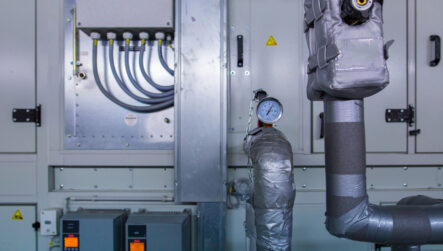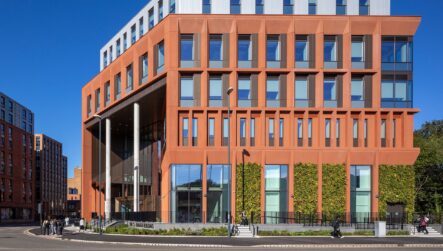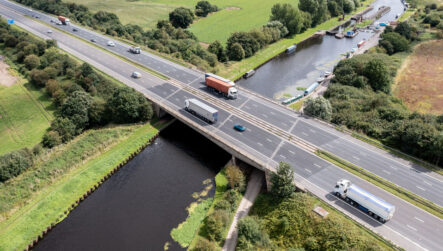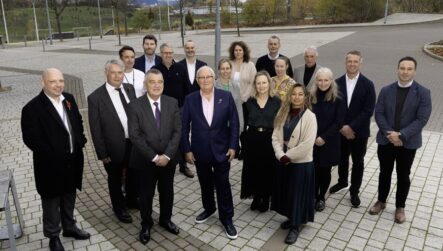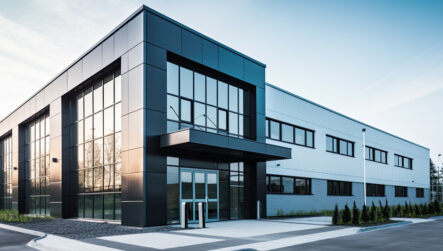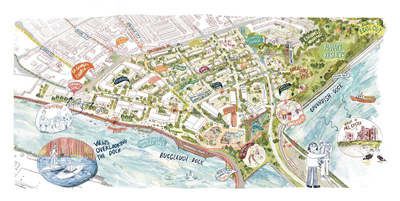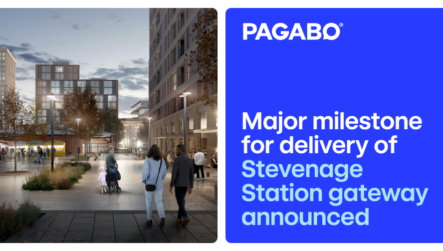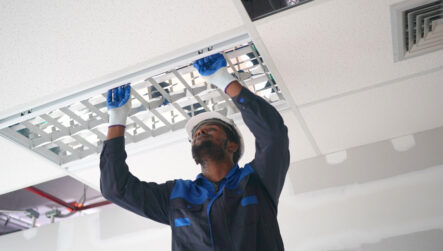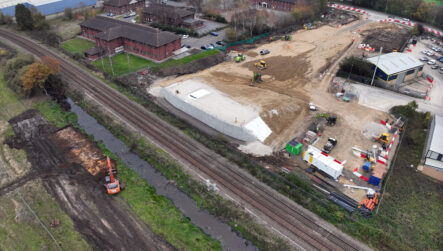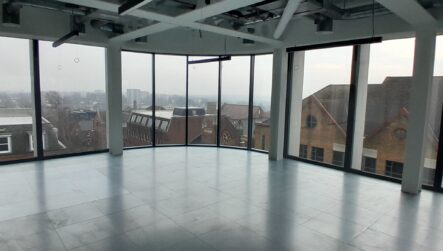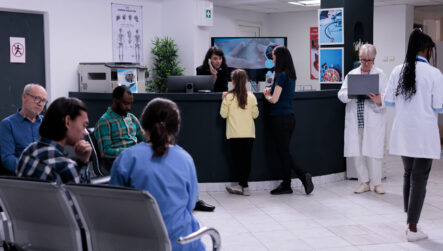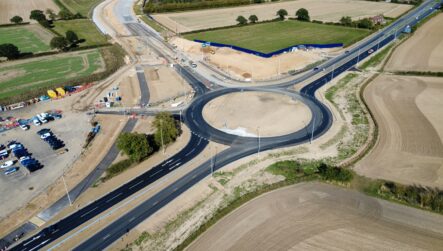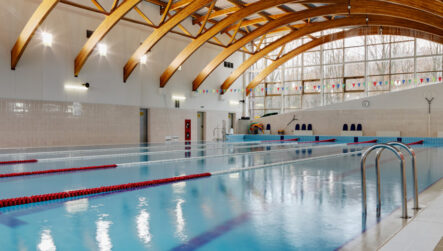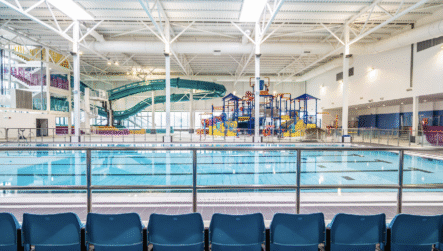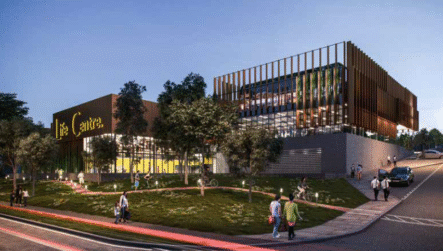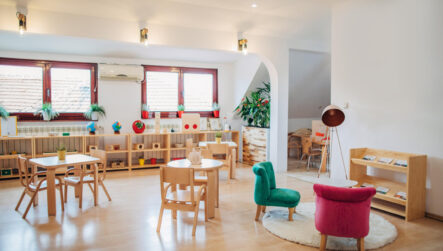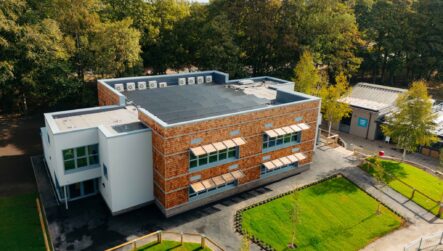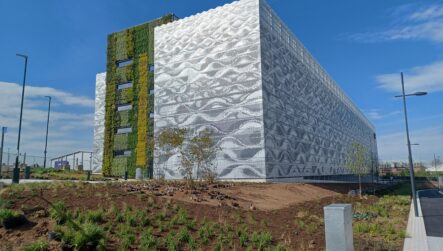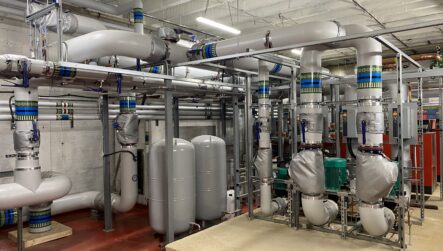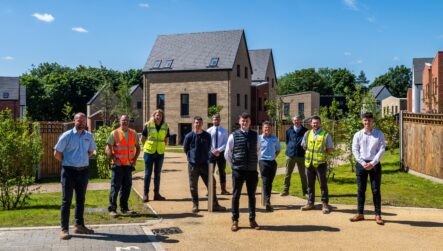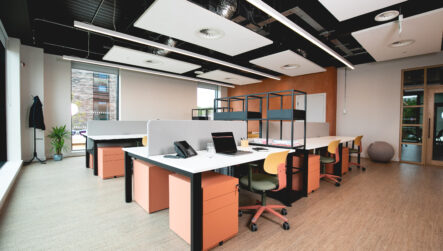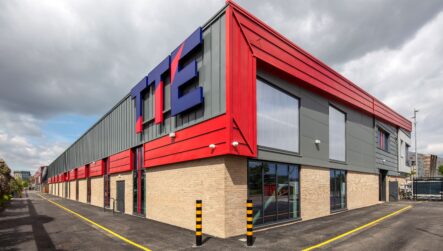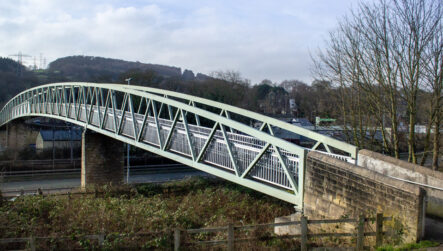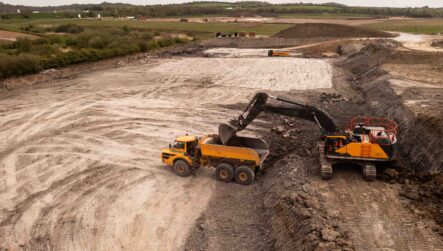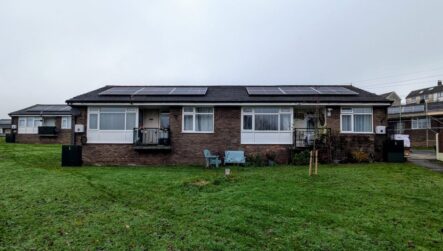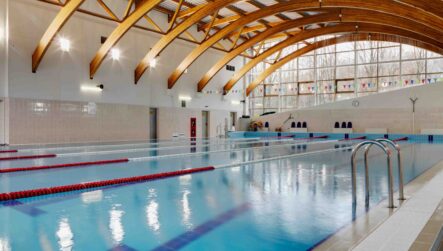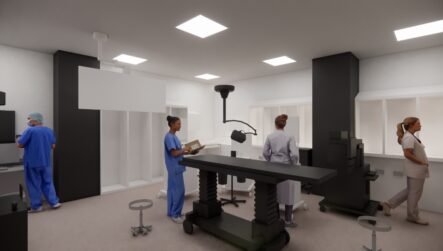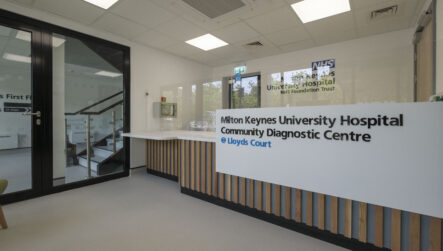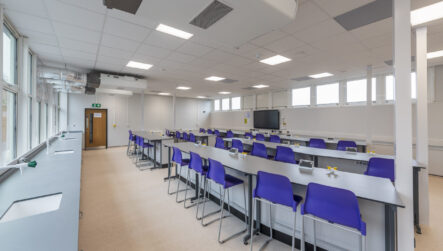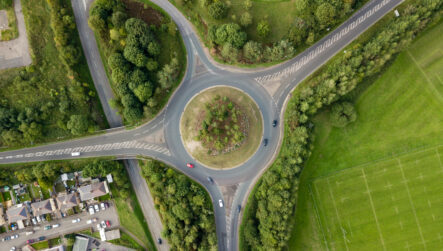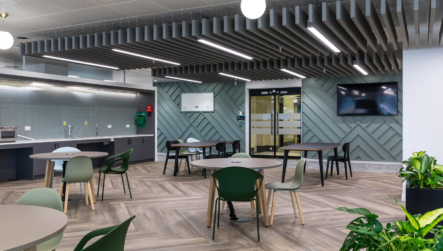Bold £7.4m Refurbishment Delivers Animal Studies Centre For Dudley College Of Technology
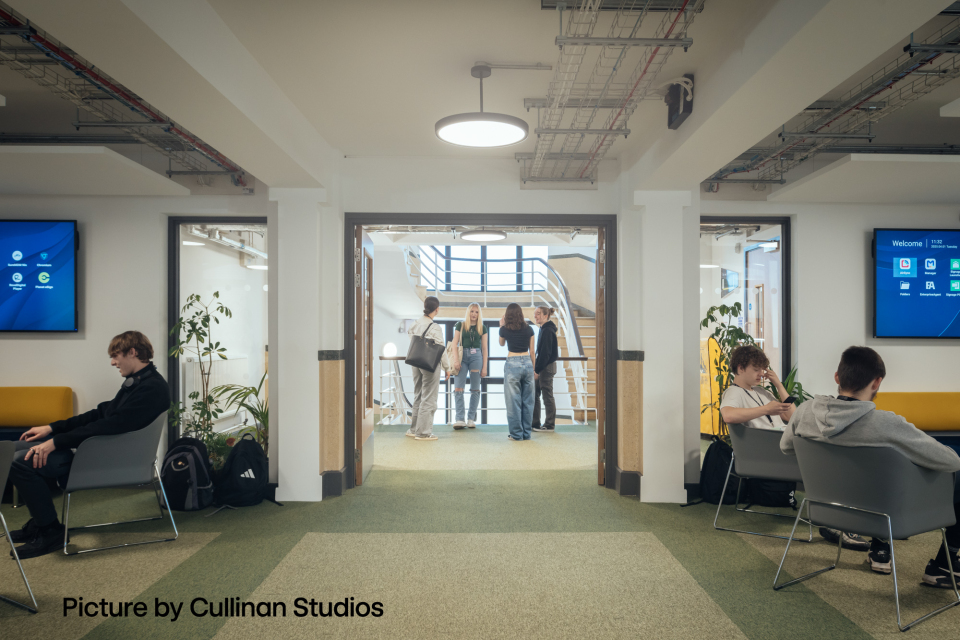
The Animal Studies Centre at Dudley College of Technology is a groundbreaking example of sustainable retrofit, transforming a redundant 1950s building into a high-performance, low-carbon educational facility. By prioritising deep retrofit over demolition, the project showcases a pioneering approach to carbon reduction that challenges conventional construction methods while delivering exceptional energy performance and cost efficiency.
Procured through the Medium Works Framework, which we manage on behalf of The Education Alliance Trust, Speller Metcalfe delivered the scheme as part of a wider campus decarbonisation initiative. The end result now hosts specialised animal care rooms, classrooms, a science teaching lab, and a commercial-style dog-grooming suite.
Proving successful sustainable retrofit
The Animal Studies Centre is a benchmark for low-carbon construction, integrating sustainable techniques and technologies throughout the entire project lifecycle. Analysis supported the sustainable reuse of the structure over the initial new build design, working to significantly reduce the carbon footprint, meaning that key works needed to include updates to the structure and removal of asbestos. This shift not only saved 20% in VAT but also cut embodied carbon to just 51kgCO2e/m², far below LETI school targets of 276kgCO2e/m².
Significant thermal upgrades were installed, including thick insulation, which was extended below the slab, and Passive Purple membrane to enhance airtightness. Low-carbon mechanical and electrical systems including air source heat pumps were also tailored to the building’s thermal efficiency.
The new facility surpasses the Department for Education’s new-build Energy Use Intensity (EUI) target, proving that existing structures can be upgraded to near net zero operationally – achieving 67 kWh per metre squared per year. It also sees Passivhaus-level energy performance of 0.91 air changes per hour.
Collaboration
The project was delivered through the innovative Integrated Project Insurance (IPI) Lite model, forming the first trial of the approach for a retrofit of lower project value. The Alliance method put collaboration and shared responsibility front and centre, focused on carbon-conscious decision-making.
The route taken showcases how sustainability, innovation, and collaboration combine to achieve significant improvements in performance, including lower carbon emissions and cost savings – all while meeting the needs of end-users and stakeholders.
It also provided ‘optioneering’ to optimise budget and design, working to ensure best value all round – and ultimately the project was delivered not just on time, but on budget too.
Elliott Talbot, Senior Framework Manager at Pagabo, said: “It can often be assumed that refurbishment and retrofit schemes can be more intensive undertaking – and extra steps like asbestos removal leading to higher project costs. However, this project goes to show that with the right team in place and a collaborative approach to decision-making zoned in on sustainable decision-making that those assumptions aren’t always correct.
“From a procurement perspective, we want to support clients with getting the right suppliers for the job at hand – and in this particular case, the success is clear. Delivering sustainable schemes isn’t all about new-builds, and the Animal Science Centre shows that the right attitude delivers retrofit that doesn’t cost the earth – in both in cost and carbon.”
Louise Lado-Brynes at IPInitiatives said: “The client has a delighted end-user team and a state-of-the-art animal care/science centre. The client and end-user formed part of the alliance, hence ensuring the budget was spent on what was most important to them. It is standard on an IPI alliance for there to be midterm and end of project feedback sessions.
“All the ‘blind alleys’ improvements and knowledge is recorded and shared including ‘people’ elements. The project was deemed more enjoyable than most traditional projects due to the nature of risk and reward, people feeling valued and the end result for the client.”
Find out more about the Medium Works Framework.
Discover our frameworks


